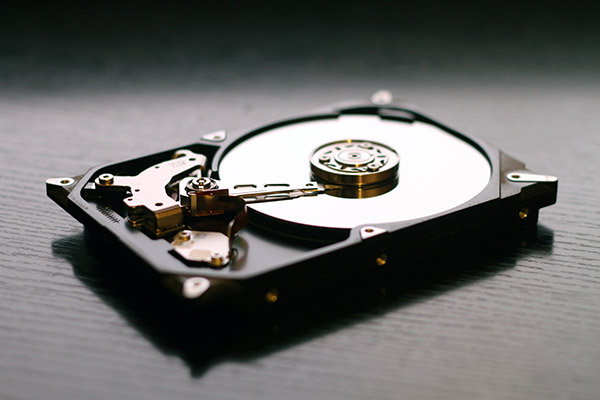What is an HDD?
A HDD is the “traditional” type hard drive found in many desktops and laptops based on a spinning metal platter with a magnetic coating. The data is read by a read/write head on an arm. For larger capacity storage at a lower cost, these are often preferred to SSDs.
Advantages of an HDD
- More affordable – lower cost per gb of storage
- Higher capacity – HDD drives are available in much higher capacities
- More readily available – Although both SSDs and HDDs are easy to buy, there is an abundance of HDDs on the market.
- Lifespan – An HDD does not have a limit number of writes unlike an SSD and therefore the life of the drive is likely to be much longer unless there is some kind of mechanical failure.
What is an SSD?
An SSD drive does very much everything that an HDD does except that the data is stored on flash based memory chips. Unlike HDD drives, SSDs have no moving parts, much faster and generally more reliable than an HDD. SSD drives tend to be more expensive per gigabyte or storage than an HDD.
Advantages of an SSD
- Faster – No moving parts and less fragmentation of data leading to access times of up to 10 times quicker than an HDD
- Lower power consumption – No moving parts means less energy is required and less heat is emitted
- Less noise – No moving parts means there is no noise emitted
- More durable – No moving parts mean it is less likely to be damaged or fail. SSDs do have a limited number of writes however this usually outlasts the life of the system so is generally not an issue.
What is an Hybrid drive?
An hybrid drive (SSHD) is essentially an HDD but with a small amount of solid state storage built in, where the controller chip on the drive decides which data should be stored on the SSD section and which shoulod be stored on the rest of the drive.
Advantages of an Hybrid drive
- Speed– Faster than an HDD however not as fast as an SSD
- Capacity – Similar to that of an HDD
- Price – Slightly more expensive than an HDD however less expensive than an SSD.
Which should I go for?
If storage capacity is not an issue, then an SSD would outweigh the benefits of an HDD and is also an excellent performance upgrade for both desktops and laptops. However, if larger storage capacity is needed at a more effective cost then an HDD would have it’s advantages.
An hybrid drive is a good compromise where more speed but larger storage is a necessity at a cost effective price. However, the drive is essentially an HDD with increased speed, however it still does not match that speed of an SSD nor does it share all the benefits that an SSD brings.
A common scenario in desktop computers used by many users is to have a smaller SSD as a primary drive for the operating system and applications, along with a larger HDD as a secondary drive for data storage.
Need more help?
To discuss which is the best type for you, we offer a range of solutions where we can discuss your needs. We can supply and fit your new drive(s) along with migration of your data where necessary.



